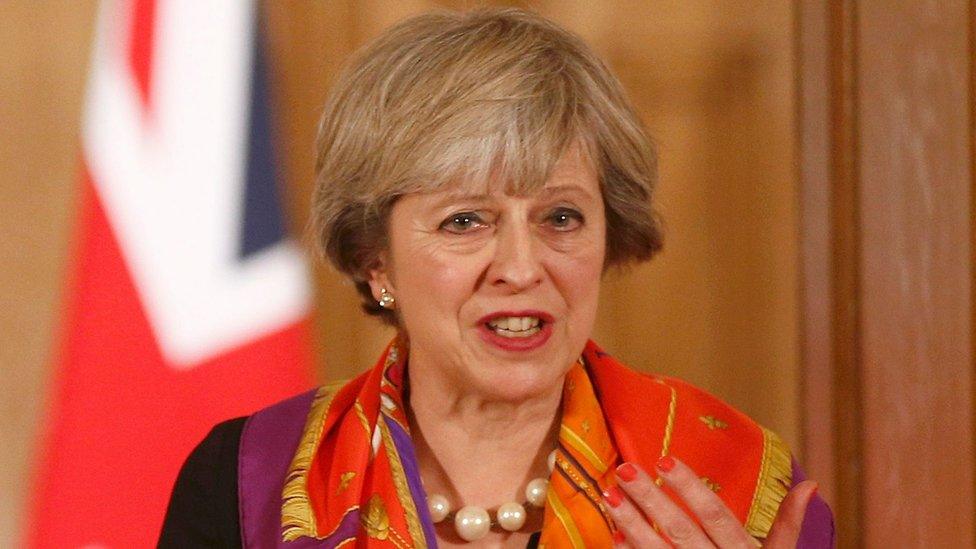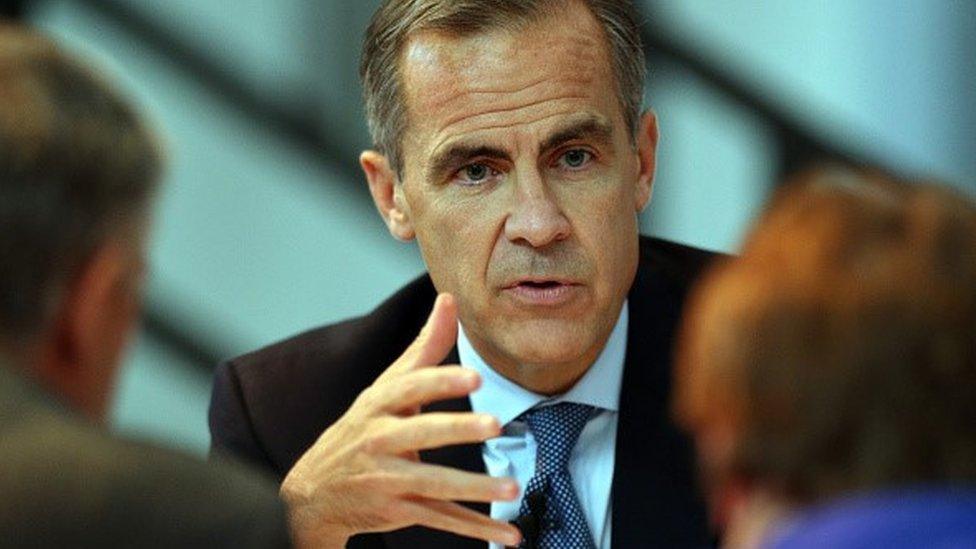Theresa May's poverty headache in quest for fairer system
- Published
- comments

"My politics are based not on some economics theory," Margaret Thatcher once said, "but on things I and millions like me were brought up with.
"An honest day's work for an honest day's pay." Capitalism was "nothing less than a crusade to enfranchise the many in the economic life of the nation".
Politicians - and indeed supporters of free market economics - have long feared a society where some people flourish to great personal gain and others miss out at great personal loss, despite their best efforts.
That way lies the chaos of a resentful backlash. And capitalism does not like chaos.
Last week, Andrew Haldane, the chief economist of the Bank of England, warned of a country where economic divisions are growing.
On Monday, Mark Carney, the governor of the Bank, said that Britain was facing "a lost decade" of stagnant incomes where people in work were no better off than before the financial crisis.
Today's Joseph Rowntree report reveals that what is called "in-work poverty" is at record levels.
Millions of people are endeavouring to do an honest day's (or night's) work for not very much pay at all.
This is the issue of our age - the sense that despite effort expended, people feel "the system" is against them.
Desire for radical change
As Mr Carney said, there is much greater acceptance of high and stubborn levels of inequality - which hasn't actually changed significantly in relative terms since the financial crisis - as long as people feel their position is getting better or has the potential to do so.
Once that breaks down, because of stagnant incomes and high costs of living, faith in the system falls and the desire for radical change grows.
Theresa May is acutely aware of this. She has spoken of an economy that "works for all".
It is an ambitious target, and presumably means that fewer people should suffer in-work poverty, not more.
The prime minister has three years to achieve a reversal of the trend highlighted by today's report.
Then, she faces a public who have yet to vote for her as a prime minister in a general election.

Bank Governor Mark Carney has spoken of a "lost decade" of stagnant incomes
With in-work benefits frozen and the risk of inflation rising, Downing Street knows it is facing into some significant headwinds.
There is much good news in the Joseph Rowntree report.
The pensioner poverty rate is down. The number of people in workless families is down as employment levels rise. Attainment levels at school are improving.
But Mrs May has not set her government that test. She has set a test on how the economy operates and who is rewarded.
Private sector role
The PM has bet the farm on improving productivity, the amount of economic value produced for each hour worked.
The wealth created should mean a pay rise for all.
That means investing in roads and railways, and businesses backing new technology and skills training so that Britain works more smoothly.
These are long term projects aimed at solving deep seated problems. And the levers are not all under the control of the state.
The private sector will have to play its role.
Mass low wage sectors such as retail, healthcare and hospitality will find themselves under increasing scrutiny.
Those on lower incomes feel squeezed - are squeezed - now.
The next election is in 2020.
Mrs May will hope that the Joseph Rowntree report on poverty that comes out the Christmas before that date has better news.
That an honest day's work is actually rewarded with an honest day's pay.